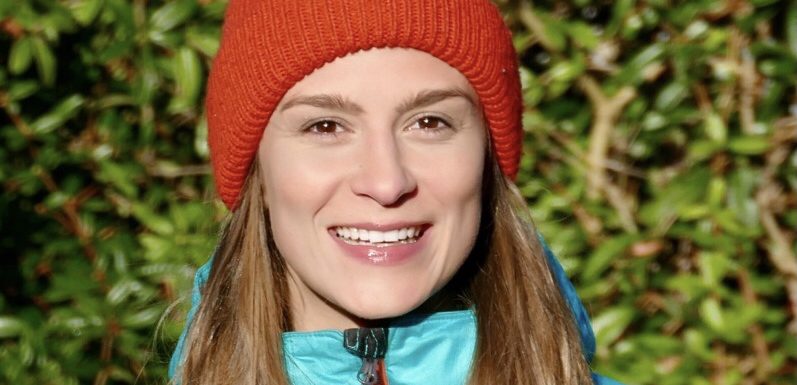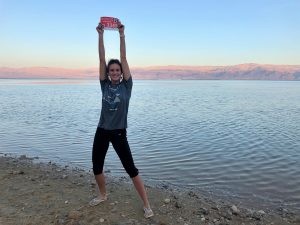
Marion is 27 years young and started her PhD in Antonio Abate’s group in September 2018. She is passionate about getting to the bottom of things, has worked in industry and loves running and playing volleyball. In this interview she tells us more about her experience as a PhD student.
How did the idea of writing a doctoral thesis emerge?
I studied in Düsseldorf and went to work first after my master’s in chemistry, crystallography. I worked in the industry and was a product manager for surface treatment agents. It was great and I enjoyed it, however I missed the deep understanding, you know, asking “why” things are the way they are. Friends also noticed that I had blossomed during my master’s thesis and wondered why I hadn’t gone into research. That’s when I realised that it’s now or never, I must do what I like.
How did you feel about making the move from industry back into science?
I believe my strength and luck at the same time was being relaxed. I had no time stress and great support in my decision making from my employer at the time. This was amazing and definitely not self-evident.
The difficult thing was to choose a topic. I didn’t really know how to do it, but if you’re honest with yourself, you can never really map out a research subject from A to Z.
What did you do in the first few months of your doctorate?
My PhD supervisor has a liberal management style and encouraged me to narrow down my field; we are working on perovskite solar cells, a topic that was new to me. So I was approaching it step by step and talked to others, to motivate myself to find what I wanted to find out. It was particularly enriching to exchange ideas with people who are not from my field, then I realize how much I am enthusiastic about my topic. This strengthens me in the fact that I made the right decision, especially since during the years of doctoral research you sometimes doubt it. In addition, you might worry that your topic is not progressing fast enough or wonder if you are at a dead end. With regard to the latter of course one hopes that the supervisor will intervene.
Your start was long before the Corona pandemic, what did you learn from that time?

There is no doubt: project-oriented work. In the beginning, I still poked around a lot in the vast amount of literature. Now I always have a specific project in mind; before starting new experiments I clearly ask myself: which sample do I measure, how and, most important, why?
I am also grateful, that my supervisor insisted so much about networking. Contacts in your research field are a “circle of safety” in which exchange is very important. I travelled a lot, gave presentations, and met people. In this way, I have learned to stand up for my topic, to arouse worldwide interest and to approach other researchers with whom I envisage to work.
What has changed for you since the pandemic?
The time management is completely different. Before, you had to learn how to prioritise between travelling to great conferences and moving forward your projects in the lab. Now with the pandemic, it’s not always easy to organise and structure your day. I used a Benefit@Work workshop from the HZB to get a better handle on my time management.
At the moment, nothing is changing at work, you talk to people, you go to the lab… I just must be careful that I don’t work too much, indeed I miss the social contact in my everyday life.
What do you do in your free moments?
I play volleyball in my free time, twice a week. Now the training schedule is on Zoom, with workouts 1.5 hours – but I admit I’m not always there. Moreover, I am a runner and I am planning to participate in the Berlin Marathon in Sept 2021 and set a new personal record.
Good luck and thanks for the interview!
FK
